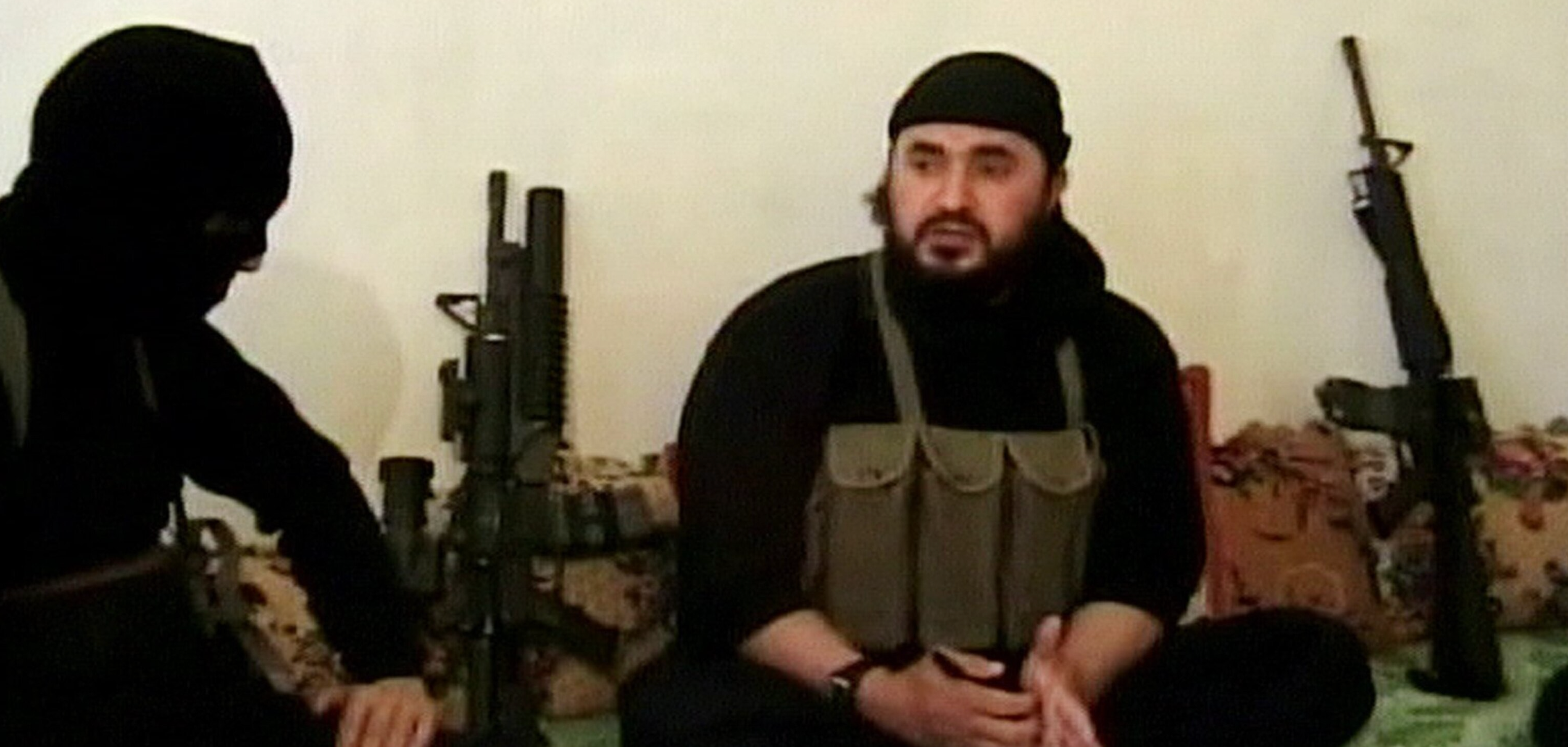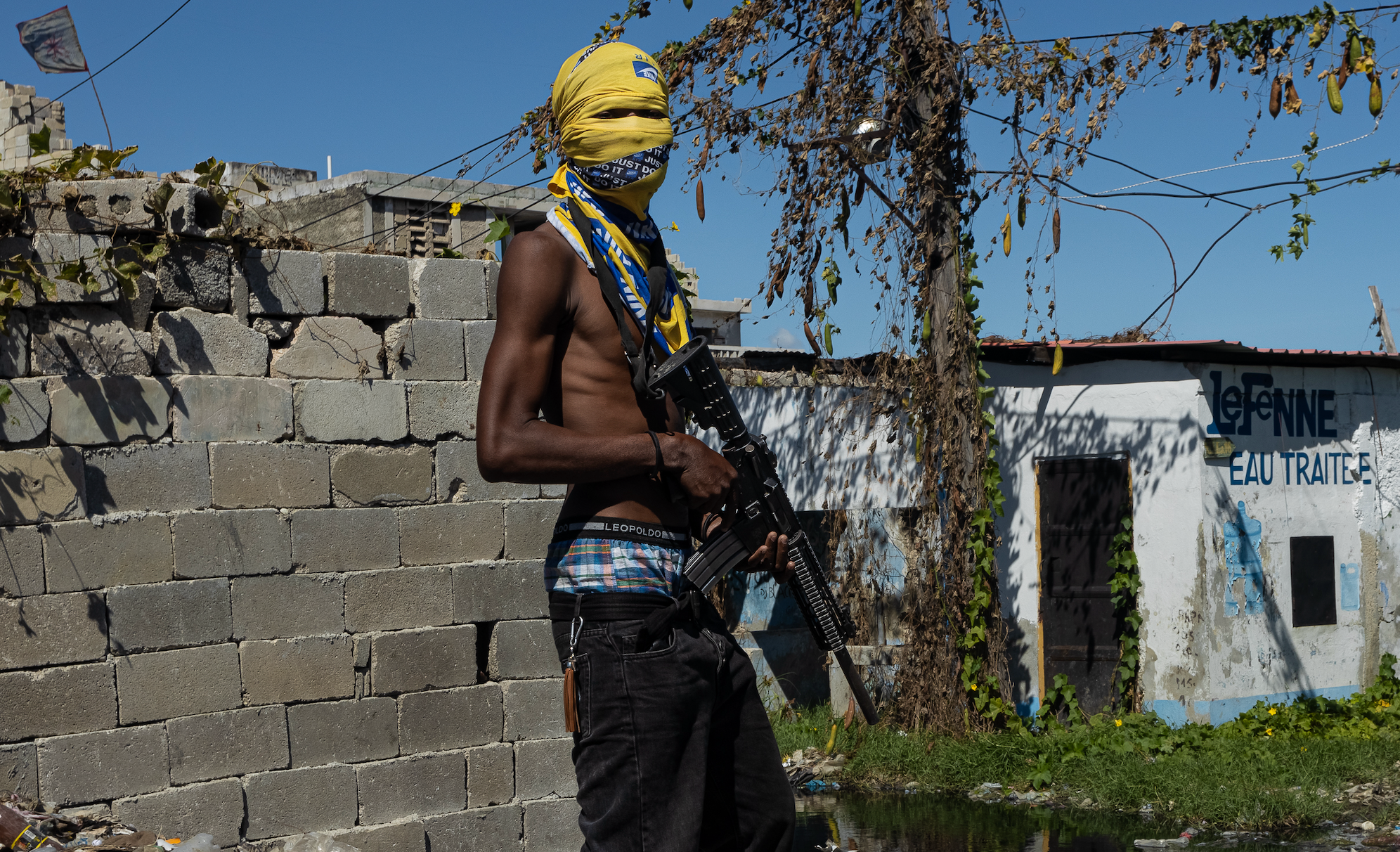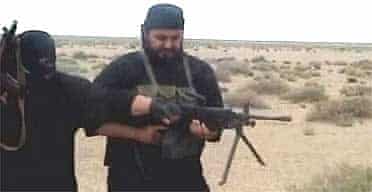
The Green Man, Pt. III
BY GABRIEL FANELLI
When Zarqawi and Bin Laden met in Kandahar, it was hatred at first sight. Sitting across from the educated and wealthy Bin Laden, the D average high school dropout who still had a few tattoos left was everything Bin Laden disliked. Appearances aside, it was what Zarqawi had to say for himself that really angered the leader of AQ. “The Shia should be executed” he said to the man with a Shia mother. Zarqawi had no filter. What possibly angered Bin Laden even more was Zarqawi’s abject disagreement to Bin Laden’s use of Arab Fighters for the Taliban against the Northern Alliance. Bin Laden was not used to such brazen criticism from someone not a trusted advisor. Gritting his teeth, Bin Laden drove on with the meeting as he saw some utility in keeping him around. AQ’s goals were political, while Zarqawi’s were still undefined.
Abu Zubaydah, as the head of AQ operations, was certainly in charge of recruiting for AQ in Kabul when Zarqawi and his band of Levantine Islamists were looking for their next holy task. However, there is a discrepancy as to how exactly Zarqawi came to shake hands with Osama Bin Laden that day. While the details may be trivial to some, correcting the narrative of how the intelligence community has approached everything Zarqawi started is a huge task. For over a decade, we relied on a narrative given by Saif al-‘Adl to a Jordanian journalist in 2005 who said he was the designated middleman between AQ and Zarqawi. His bona fides as AQ’s former security chief allowed the story to go unquestioned, but years later before his death, Bin Laden himself finally saw the correspondence and called it fraudulent. For a deep dive on this, I recommend “Revising the History of al-Qa’ida’s Original Meeting with Abu Musab al-Zarqawi” by Brian Fishman of the Combating Terrorism Center at West Point. One commonality of any narrative is that Bin Laden immediately disliked Zarqawi. Whoever the AQ middleman really was, AQ decided to give $5,000 to Zarqawi, and Bin Laden sent him to Herat, as far away from him as possible.
Five times between 2000 and 2001, Osama Bin Laden reached out to Zarqawi asking him to come pledge his allegiance to him and AQ and five times he refused. Immediately after 9/11, Shia tribal leaders attacked Zarqawi and his men, and only with the help of the son of the Taliban governor of Herat did he escape. Whether this was done at the urging of Bin Laden is just a theory of my own, but it is possible he wanted to get rid of Zarqawi. In late October 2001, Zarqawi and his group now known as Jund al-Sham or “Soldiers of the Levant” finally merged with AQ to fight the Americans. Two months later he was wounded during an American airstrike in Kandahar when the roof collapsed on him. Bin Laden’s former bodyguard, Shadi Abdullah, says that Zarqawi had been granted access into Bin Laden’s inner sanctum at the recommendation of Abu Zubaydah, but yet again we find some serious issues with this narrative. Most telling, Bin Laden refused to take Zarqawi along with him when he fled into the mountains of Tora Bora. Instead, he retreated into Iran with about 300 fighters. He had a sign above his camp in Herat saying Tawhid wa al-Jihad, Unity and Jihad. He would name his new network in Iraq after this slogan.
For all of 2002, Zarqawi mostly travelled around the Kurdish areas of Iran and Iraq, but sometimes popped up in the Sunni triangle, Lebanon, and Syria – each time looking for fresh recruits. His lust for violence didn’t stop, and he arranged for the assassination of USAID officer Laurence Foley outside his home in Amman in October 2002. Back at his camp in Northern Iraq, his group experimented with chemical weapons which Abu Zubaydah revealed to the world in December 2002. The CIA had been tracking Zarqawi and wanted to take out his camp with a precision air strike. They were answered with a resounding no. The chemical weapons were destined for Europe, but the Bush Administration was looking for a reason to invade Iraq and Zarqawi became the scapegoat.
Dick Cheney, Scooter Libby and Donald Rumsfeld decided the CIA’s intelligence provided them the perfect opportunity to legitimize their invasion if it was massaged slightly. Certain elements within the Administration desperately wanted to connect AQ with Saddam Hussein, despite Zarqawi being the kind of guy Saddam would likely have imprisoned or killed if given the chance. To be clear, the CIA had zero evidence that Zarqawi was tied to Saddam and made it known. The Administration had other plans.
On February 5, 2003, then Secretary of State Colin Powell addressed the UN Security Council and named Zarqawi as the missing link between AQ and Saddam Hussein. Zarqawi felt as surprised as he did invigorated by seeing his name come out of the mouth of the top diplomat of the United States. If there was one thing Zarqawi loved more than Allah, it was himself. This is the fame he needed in order to be taken seriously by Bin Laden, but being taken seriously by the United States meant a bounty on his head. Zarqawi didn’t squander his fifteen minutes of fame, rather he used them to set the country of Iraq on fire and lay the seeds for the formation of the Islamic State.









